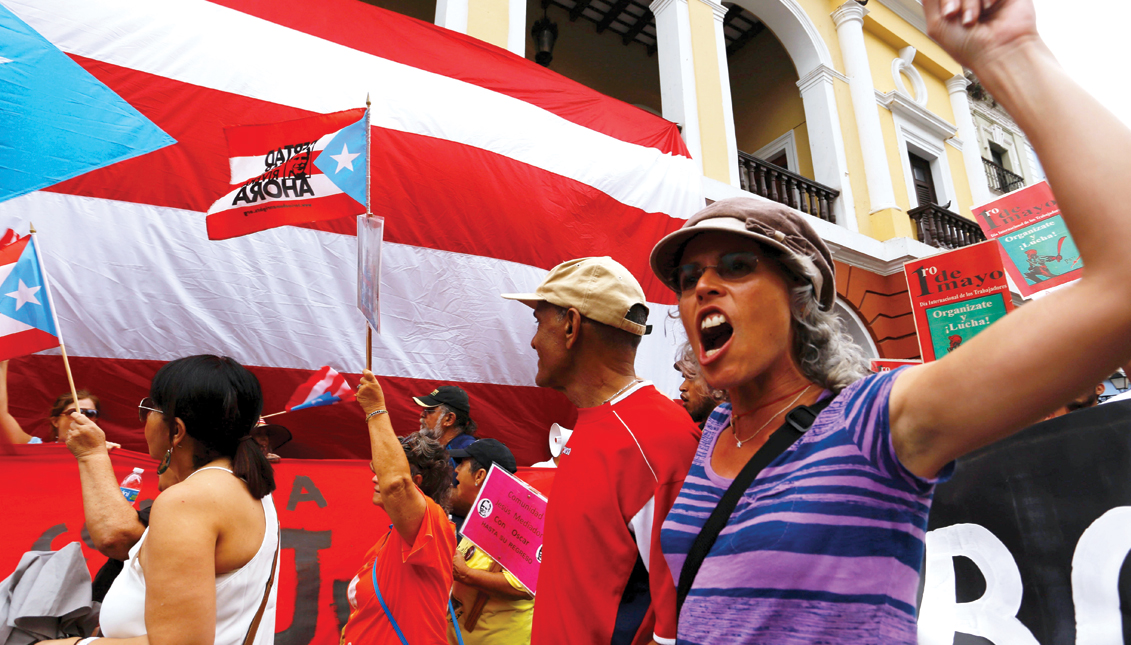
In 2006, the University of North Carolina Press published Puerto Rico in the American Century, a history of Puerto Rico since 1898, written by César J. Ayala and I.
In our conclusion we wrote the following:
“At the time of writing, the decrease in manufacturing employment continues, public debt has reached unprecedented levels and Wall Street rating agencies are close to reducing Puerto Rico’s government financial instruments to the level of junk bonds. More critically, government agencies have run out of funds two months before the end of fiscal year 2005-2006. An impasse between the Popular Democratic Party-controlled Executive and a New Progressive Party-led Legislature forced a two-week layoff of close to 100,000 public employees. Coinciding with this, Congress is conducting hearings on possible mechanisms of dealing with the status question. Erosion of the prestige of the major political parties, fiscal crisis and growing exasperation on the island, on Wall Street and in Washington with Puerto Rico’s overall situation: Puerto Rican society is at the end of an era.”
The least that can be said is that these words were prophetic: manufacturing employment continued to decrease, public debt spiraled upward, Puerto Rico’s bonds were downgraded to junk-bond rating in 2014 and most analysts eventually recognized that Puerto Rico’s debt is unsustainable and must be restructured (how and on what terms is another matter). Puerto Rico, as we pointed out a decade ago, is at the end of an era.
The provisions of the Puerto Rico Oversight, Management & Economic Stability Act (Promesa) in their own way are a recognition that Puerto Rico’s crisis cannot be addressed through existing legal and institutional structures. Whether the changes pursued by Promesa are in the best interest of Puerto Rico is again quite a different question. Precisely because I felt in 2006 that Puerto Rico was at the end of an era, I joined the efforts to launch the Partido del Pueblo Trabajador: not unlike the Great Depression of the 1930s, to open a new chapter in our social and economic history we need new political vehicles.
And we need new political parties. Puerto Rico has many complex problems (economic, administrative, environmental, health, etc.). We need proposals to address them in a coherent fashion. That is to say: we need an integrated program. But a program does not execute itself: we need people to support and move it forward. And we need candidates that represent it. This is what a party is, or should be: a program, people organized democratically to promote it and candidates who seek to legislate and execute it. I feel that we need new options, beyond the two parties that have brought us to the present impasse and that those options should be participatory, collective options.
Back in 2006, we indicated the root problem of Puerto Rico’s growing crisis: the exhaustion of a development policy centered on tax exemptions and an almost absolute dependence on external investment. We were not the first to point this out. For example, in 1975, in his report on government finances, economist James Tobin warned against the growing outflow of profits. Regarding Tobin’s report, we wrote in 2006: Tobin “pointed out that the outflow of profits resulting from external control…was statistically reflected in the widening gap between the gross domestic product (GDP) and the gross national product (GNP)…. The less the expansion of the GDP was reflected in the growth of the GNP, the less the island’s economic expansion would translate into the welfare of its inhabitants. The report predicted that ‘growing dependence on external resources’…would tend to widen the gap.”
This is the gap we need to reduce: we must ensure that much more of the wealth generated in Puerto Rico is reinvested here. We are trapped in the vicious circle of dependence: we lack investment funds, we invite external capital to invest, but most of the profits generated leave the island and we are back at the starting point. Our objective should be a transition to a virtuous circle of self-sustained development wherein income generated here is reinvested here, generating a self-propelling expansion. This is why a new version of Section 936 will not do the trick: it would be another ride in the circle of dependence. While Section 936 coincided with moderate growth, we should not forget that it was never able to reduce unemployment below 10% or poverty levels below 40%. It was irresponsible to eliminate it without anything to replace it, but that does not make it an adequate alternative to the present crisis.
There are, briefly stated, two paths before us. One favors reductions in government spending and employment, minimum pay and welfare programs, erosion of labor rights, regressive tax reform reliant on consumer taxes and new tax exemption measures. At best, this path would turn Puerto Rico into an impoverished export platform. It would insert us in the global economy, not through higher productivity but through higher exploitation of our labor force. The other path insists that we should not confuse productivity with exploitation: this path favors a radical revision of tax exemption measures, a progressive tax reform combined with anti-evasion measures and the active promotion of industrial and agricultural initiatives committed to reinvestment. Our structural problem is an economy that does not retain a considerable portion of the wealth generated within it. If we do not address this structural problem, we will continue to perpetuate the consequences of the dependent development that have plagued us for decades.
Rafael Bernabe is the candidate for governor from the Working People’s Party (PPT by its Spanish initials), of which he is one of the founders. A historian and sociologist, Bernabe has been a professor at the University of Puerto Rico for more than 20 years and has served as the president of the Puerto Rican Association of University Professors. He has been active in many social causes, including the rights of workers, women, immigrants, the LGBTTIQ community and the environment.
Originally posted here.


Leave a Reply